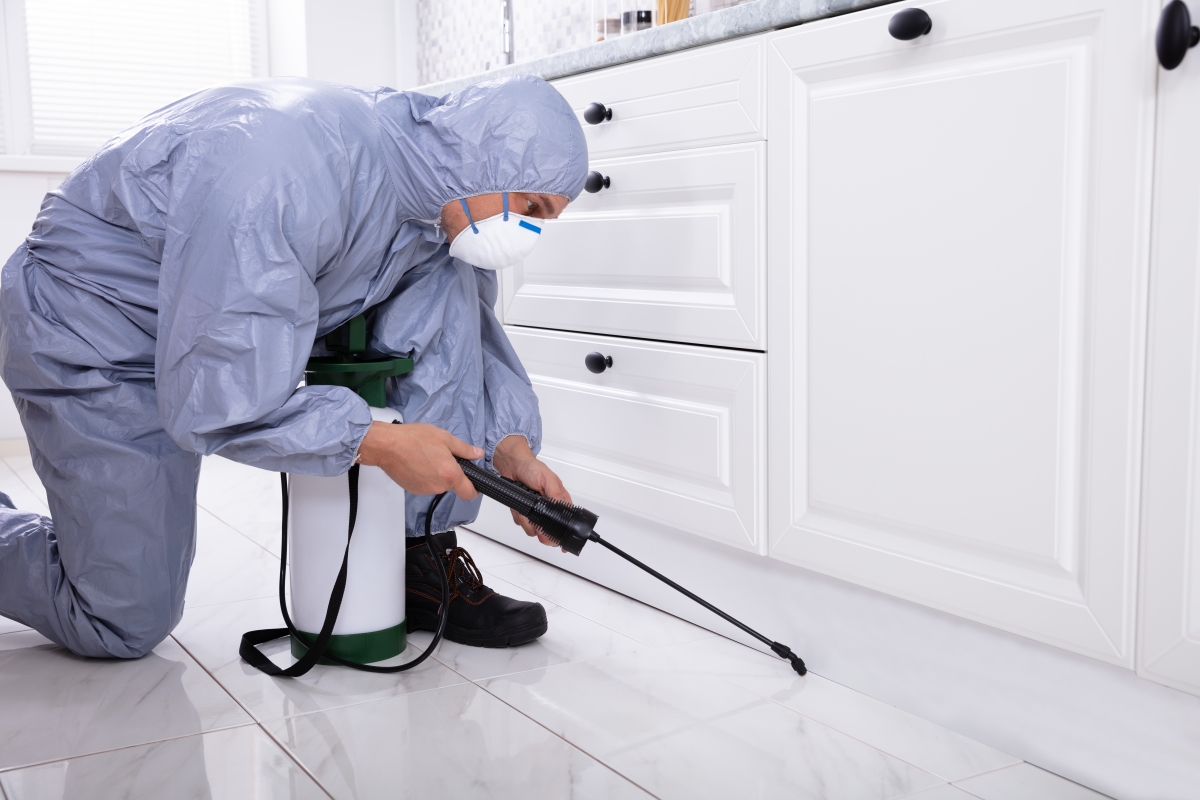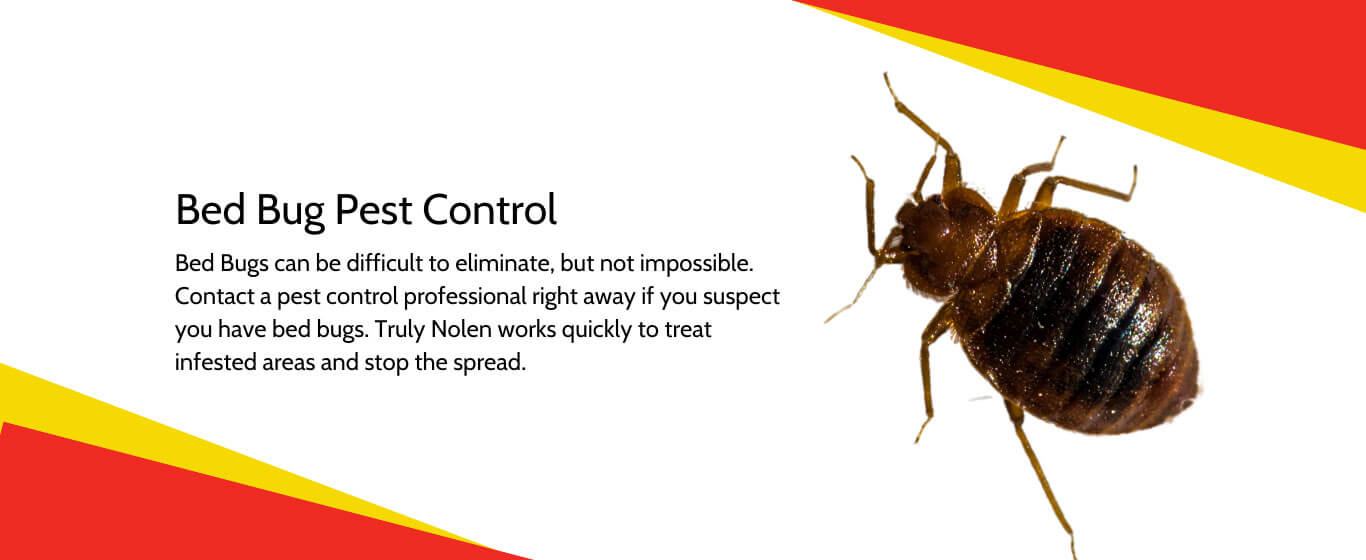Safe and Trusted Pest Control for Lasting Defense
Reliable bug monitoring requires a multifaceted method that balances environmental honesty with the requirement for efficient parasite reductions. The subtleties of these approaches might not be promptly clear, prompting a more detailed examination of the practices that can lead to sustainable insect control results.
Understanding Bug Control Methods
Pest control includes a variety of techniques focused on managing and eradicating unwanted pests and rodents that can threaten both health and wellness and residential property. Comprehending these techniques is vital for efficient bug monitoring.
The primary classifications of pest control approaches consist of mechanical, biological, and chemical approaches. Mechanical methods involve physical barriers and catches to stop parasite access and capture undesirable species. For example, using screens on windows or utilizing sticky traps can significantly lower parasite populations without introducing hazardous compounds.

Chemical parasite control is often one of the most acknowledged approach, making use of pesticides to remove insects. These chemicals can be efficient but have to be made use of with caution to stay clear of unfavorable results on non-target species and the environment.
Benefits of Eco-Friendly Solutions
Exactly how can eco-friendly remedies transform insect control practices? The adoption of green parasite control methods uses many advantages, substantially boosting the performance and safety of bug monitoring.

Another advantage is the favorable effect on regional biodiversity. Environmentally friendly options are developed to target details insects while maintaining helpful insects and wildlife, advertising a well balanced ecological community. This strategy lines up with the growing customer need for sustainable methods, boosting the reputation of insect control providers.
Integrated Insect Administration Strategies
The application of environmentally friendly remedies naturally leads to the fostering of Integrated Parasite Management (IPM) approaches, which even more boost insect control efficiency. IPM is an alternative technique that integrates numerous techniques to manage parasite populaces while lessening ecological effect. This method highlights using organic, cultural, mechanical, and chemical controls, guaranteeing a lasting and well balanced method of parasite administration.
One essential facet of IPM is the thorough assessment of parasite task and environmental problems. By checking insect populaces and recognizing their life cycles, experts can apply targeted interventions that interfere with the bug's environment or lifecycle, lowering reliance on chemical pesticides. In addition, social methods such as plant turning and environment control can dramatically reduce pest establishment and recreation.
An additional crucial component is making use of organic control representatives, such as helpful insects or microorganisms, which can normally suppress pest populations. When chemical applications are essential, IPM focuses on making use of low-risk pesticides and applies them selectively, decreasing direct exposure to non-target microorganisms and people.
Integrating IPM strategies not just improves bug control performance but additionally advertises a more secure ecosystem, straightening with the growing need for sustainable practices in bug management.
Safe Practices for Homeowners
Comprehending the value of risk-free practices in insect control can equip home owners to properly handle parasite concerns while securing their wellness and the atmosphere. Carrying out non-toxic approaches and precautionary measures is crucial in decreasing exposure to dangerous chemicals.
Property owners need to first examine their setting for conditions that draw in insects, such as standing water, food, and you could look here mess waste. Consistently cleansing and sealing entry factors can discourage pests from getting into the home. Making use of all-natural deterrents, such as crucial oils or diatomaceous earth, can give efficient choices to chemical pesticides.
When chemical treatments are required, home owners ought to choose for items that are especially identified as safe for household usage. It is vital to adhere to application guidelines carefully to stay clear of overexposure. Utilizing targeted therapies in areas where pests are recognized, instead than covering spraying, can considerably minimize chemical usage.
Finally, preserving open communication with bug control experts is essential. Homeowners need to ask about the security of products utilized and demand green alternatives whenever possible. By taking on these risk-free techniques, house owners can create a much healthier living environment while properly taking care of pest concerns.
Tips for Long-Term Defense
Developing an insect monitoring technique that stresses long-lasting defense can significantly boost the effectiveness of the safe methods previously talked about. To attain this, home owners ought to carry out routine inspections of their residential property, concentrating on hidden locations such as attics, cellars, and crawl areas. Early detection of bug activity is critical in preventing infestations from taking hold.
These methods lower attractants that draw pests into the home. Securing entry factors, such as cracks around windows and doors, can properly block possible insect accessibility.
Landscape design must additionally be taken into consideration; maintaining plants cut and keeping a range between greenery and the home reduces hiding areas for parasites. Utilizing natural deterrents, such as essential oils or diatomaceous planet, can even more dissuade problems without considering severe chemicals.
Last but not least, teaming up with an expert pest control solution for regular analyses can offer an added layer of safety. These experts can provide customized recommendations and advanced treatments, guaranteeing that your home remains secured versus pests in the long-term.
Conclusion
Finally, secure and trusted insect control calls for a diverse approach that stresses environment-friendly methods and integrated pest monitoring. By implementing natural deterrents, conducting routine inspections, and maintaining proper sanitation, residential property owners can significantly minimize click here for info insect populations while protecting advantageous pests and the environment. Partnership with expert insect control services enhances the effectiveness of these methods, guaranteeing tailored options that supply long-term security and peace of mind against future infestations.
Effective pest monitoring requires a diverse method that balances ecological stability with the demand for efficient insect reductions. The adoption of environmentally friendly bug control approaches offers many advantages, considerably boosting the effectiveness and security of parasite monitoring.The implementation of eco-friendly options normally leads to the fostering of Integrated Bug Monitoring (IPM) approaches, which better enhance bug control effectiveness. moved here exterminator coquitlam. By keeping track of insect populaces and recognizing their life cycles, experts can execute targeted interventions that interrupt the pest's environment or lifecycle, minimizing dependence on chemical pesticides.In conclusion, safe and trustworthy bug control needs a complex technique that stresses eco-friendly techniques and integrated parasite monitoring